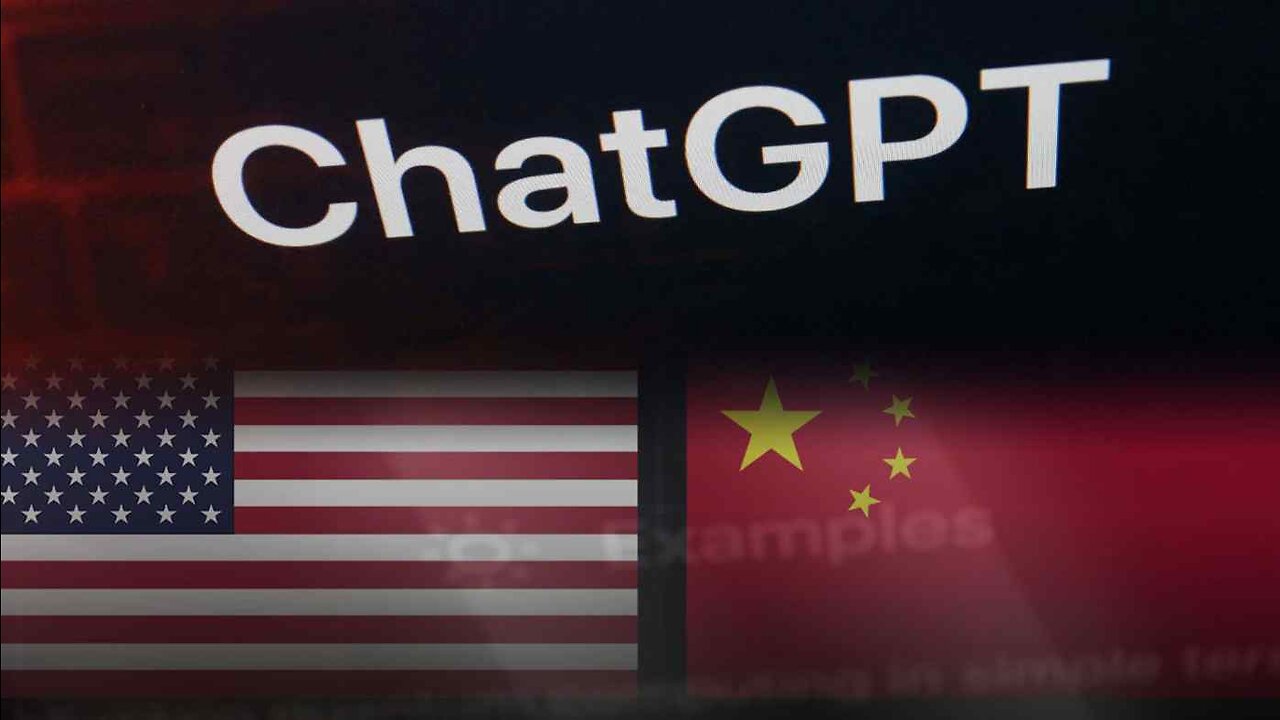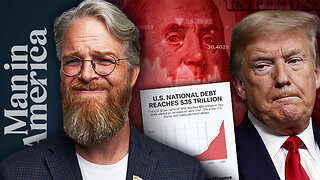Premium Only Content

ChatGPT: Can China overtake the US in the AI marathon? - BBC
🥇 Bonuses, Promotions, and the Best Online Casino Reviews you can trust: https://bit.ly/BigFunCasinoGame
ChatGPT: Can China overtake the US in the AI marathon? - BBC
Image source, Getty Images By Derek Cai Annabelle Liang BBC News Artificial intelligence has emerged as enough of a concern that it made it onto what was already a packed agenda at the G7 summit at the weekend. Concerns about AI's harmful impact coincide with the US' attempts to restrict China's access to crucial technology. For now, the US seems to be ahead in the AI race. And there is already the possibility that current restrictions on semiconductor exports to China could hamper Beijing's technological progress. But China could catch up, according to analysts, as AI solutions take years to be perfected. Chinese internet companies "are arguably more advanced than US internet companies, depending on how you're measuring advancement," Kendra Schaefer, head of tech policy research at Trivium China tells the BBC. However, she says China's "ability to manufacture high-end equipment and components is an estimated 10 to 15 years behind global leaders." The Silicon Valley factor The US' biggest advantage is Silicon Valley, arguably the world's supreme entrepreneurial hotspot. It is the birthplace of technology giants such as Google, Apple and Intel that have helped shape modern life. Innovators in the country have been helped by its unique research culture, says Pascale Fung, director of the Center for Artificial Intelligence Research at the Hong Kong University of Science and Technology. Researchers often spend years working to improve a technology without a product in mind, Ms Fung says. OpenAI, for example, operated as a non-profit company for years as it researched the Transformers machine learning model, which eventually powered ChatGPT. "This environment never existed in most Chinese companies. They would build deep learning systems or large language models only after they saw the popularity," she adds. "This is a fundamental challenge to Chinese AI." US investors have also been supportive of the country's research push. In 2019, Microsoft said it would put $1bn (£810,000) in to OpenAI. "AI is one of the most transformative technologies of our time and has the potential to help solve many of our world's most pressing challenges," Microsoft chief executive Satya Nadella said. China's edge China, meanwhile, benefits from a larger consumer base. It is the world's second-most populous country, home to roughly 1.4 billion people. It also has a thriving internet sector, says Edith Yeung, a partner at the Race Capital investment firm. Nearly everyone in the country uses the super app WeChat, for example. It is used for almost everything from sending text messages, to booking doctor's appointments and filing taxes. As a result, there's a wealth of information that can be used to improve products. "The AI model is going to be only as good as the data that is available for it to learn from," Ms Yeung says. "For good or bad, China has a lot less rules around privacy, and a lot more data [compared to the US]. There's CCTV facial recognition everywhere, for example," she adds. "Imagine how useful that would be for AI-generated images." While China's tech community may appear to be lagging behind the US, its developers have an edge, according to Lee Kai-Fu, who makes the argument in his book AI Superpowers: China, Silicon Valley, and the New World Order. "They live in a world where speed is essential, copying is an accepted practice, and competitors will stop at nothing to win a new market," wrote Mr Lee, a prominent figure in Beijing's internet sector and the former head of Google China. "This rough-and-tumble environment makes a strong contrast to Silicon Valley, where copying is stigmatised and many companies are allowed to coast on the basis of one original idea or lucky break." China's copycat era has its problems, including serious issues around intellectual property. Mr Lee writes that it has led to a generation of hardy and nimble entrepreneurs ready to compete. Since the 1980s, China has been expanding its economy, which used to be based mainly on manufacturing, to one that is technology-based, Ms Fung says. "In the last decade, we have seen more innovation from Chinese consumer-driven internet companies and high-end Chinese designs," she adds. Can China catch up? While Chinese tech companies certainly have unique advantages, the full impact of Beijing'...
-
 4:23:03
4:23:03
Akademiks
7 hours agoASAP Rocky Case has Begun . He's facing 24 years for SH**ting his friend!
63.2K25 -
 4:03:43
4:03:43
Benny Johnson
8 hours ago🚨Pete Hegseth Senate Confirmation Vote Happening LIVE NOW | MAJOR Shakeup at Pentagon
169K398 -
 2:14:18
2:14:18
FreshandFit
6 hours agoCastle Club Zoom Call Show
48.8K5 -
 1:01:08
1:01:08
SNEAKO
5 hours agoFRIDAY NIGHT VIBES
31.6K2 -
 1:16:47
1:16:47
Talk Nerdy 2 Us
12 hours agoTrump’s Biggest Sign, Sticker Mule’s Secrets & The Cybersecurity Threats They Don’t Want You to Know
15.3K5 -
 4:57:20
4:57:20
Robert Gouveia
9 hours agoHegseth Final Vote; Trump SLAPS Biased D.C. Judge; Rebuilding North Carolina
35.8K58 -
 47:40
47:40
Man in America
10 hours agoCan Trump Avert Economic Disaster Amid a $35T Debt Crisis? w/ Collin Plume
81.8K15 -
 4:07:44
4:07:44
I_Came_With_Fire_Podcast
13 hours ago🔥🔥Trump’s FIRST WEEK, FTOs, Deportations, & JFK FILES🔥🔥
33.2K2 -
 5:26:14
5:26:14
Barry Cunningham
10 hours agoTRUMP DAILY BRIEFING: PETE HEGSETH & KRISTI NOEM CONFIRMATIONS - TRUMP IN CALIFORNIA!
40.2K27 -
 2:06:17
2:06:17
Joker Effect
5 hours agoWhy So Serious Gameplay: Making scrubs in Brawlhalla cry baby tears.
21.7K3